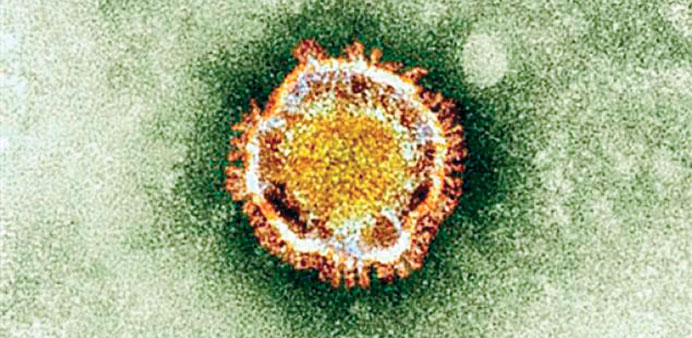A joint Qatari and Dutch research team has succeeded in culturing the Middle East Respiratory Syndrome Coronavirus (Mers-CoV) in the laboratory, the Supreme Council of Health (SCH) announced yesterday.
The breakthrough will increase the knowledge for prevention and control of Mers-CoV in addition to enhancing the development of diagnostic tools and production of vaccines and treatment for the virus.
The achievement is the result of combined efforts from the SCH and the Ministry of Environment from Qatar as well as Erasmus Medical Centre in the Netherlands with support of the World Health Organisation (WHO).
The SCH has pointed out that in Qatar the efforts continue to determine the source and root of the virus transmission, resulting in a series of studies, one of which yielded the virus.
Based on WHO’s recommendations, a national sero-survey will be conducted by the end of this month, to determine risk factors for MERS-CoV as well as to identify the source of the virus. The sero-survey will include screening of animals and workers.
The collaboration between Qatar, Erasmus Medical Centre and the National Institute for Public Health and the Environment of the ministry of health in the Netherlands focuses on research co-operation and exchange of experiences and expertise as well as training of laboratory technicians for the diagnosis of the virus.
This resulted in matching laboratory results between veterinary biotechnology laboratories under Qatar’s Ministry of Environment with the Erasmus Medical Centre in the Netherlands in virus detection by using the polymerase chain reaction (PCR) techniques, making the labs in Qatar the first in the Middle East for the diagnosis of Mers-CoV in animals.
The SCH also announced that there had been no new human cases of the Mers-CoV in Qatar since October 2013, although intensive surveillance of the disease is undergoing in collaboration between healthcare providers in hospitals and Department of Animal Health resources.
The SCH has urged all citizens and residents to apply measures for the prevention of the disease and to communicate with healthcare providers if they develop acute respiratory symptoms, especially if accompanied by fever and there was a close contact with animals.
Hotlines for communicable diseases control in SCH: English - 66740951, Arabic – 66740948. Hotline for animal health resources: 33611924; hotline for Ministry of Environment: 998 (general).

